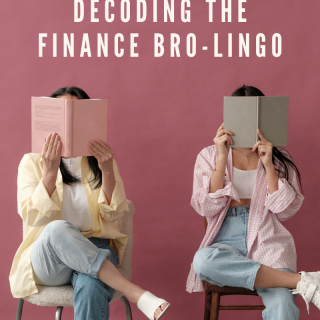Breaking the Silence: Confronting the Money Taboo

 “Taboo” refers to a social or religious custom forbidding discussion of a particular topic. In this case: Money.
“Taboo” refers to a social or religious custom forbidding discussion of a particular topic. In this case: Money.
What are your first money memories? Did your parents openly talk to you about house-hold expenses? Were you taught about managing your finances? Do members of your family openly talk about their retirement plans?
If you’re part of a minority community the answer to most of these questions is likely: No. And you’re not alone. Money taboo is pervasive in many households regardless of their financial position.
In the tapestry of society’s unwritten rules and diverse traditions, talking about money can sometimes feel like a forbidden dance. This is especially true within minority communities. This hush-hush attitude towards financial matters isn’t just a quirk of culture. This cultural norm is woven into a web of historical, social, and economic complexities. In this blog post, we’ll dive into why money discussions remain in the shadows within minority groups and uncover the ripple effects of this silent pact.
Historical Context
Throughout history, minority communities have faced a maze of systemic inequalities that not only limited our access to wealth accumulation, but also to avenues of financial literacy. Thus, discussing money serves as a constant reminder of these inequalities, making it a topic we often shy away from. Further, a history marked by economic exploitation and discriminatory practices has planted seeds of doubt about financial systems among many minority populations. This distrusts is why we continue to save our money “under the mattress.” Money taboo is a way to protect ourselves from potential exploitation and the judgment of others.
Cultural and Social Perspectives

From a cultural standpoint, many minority communities have a strong emphasis on humility and discretion. We tend to view conversations about personal wealth, income, or financial difficulties as either showing off or impolite behavior. This cultural mindset naturally extends to how we approach discussions about money, keeping them behind closed doors.
Damned if you Do & Damned if you Don’t
On one hand, there’s a tangible fear that talking about financial achievements might attract envy or ill intentions. On the other hand, opening up about financial challenges could lead to unwelcome pity or judgment. So to maintain societal harmony and avoid potential conflicts, we often steer clear of discussions that could highlight economic disparities within our community.
Further, as women of color, we often find ourselves at a unique intersection where race and gender amplify the challenges we face. This is true especially in the context of financial discussions and economic participation.
Economic Implications
The taboo surrounding money conversations unfortunately results in limited discussions about financial planning, investments, and wealth management within our communities. Being silent about money is costing us time away from doing whatever brings us joy, it is costing us stability, and our retirements.
This secrecy unintentionally holds us back from spreading essential financial knowledge and strategies, which are crucial for economic progress and mobility.
Breaking the Taboo
To create a future where we can openly and constructively discuss financial matters, we must prioritize tailored financial education for us. This means going beyond generic advice and recognizing the unique challenges we face. That is precisely what WorldlyWOC strives to do: To provide a safe space for women of color to ask questions and to dismantle the fear and shame surrounding money talks.
The Way Forward
It is time for us to break the generational chains that have kept us silent and broke for far too long. Here are some actionable tips to leave our money shame and fear behind:
-
Customized Education:
Seek out financial resources and programs specifically designed for people like you. Having financial education that acknowledges your financial reality and financial goals is key. These resources provide insights and solutions tailored to your unique circumstances. And more importantly, you’ll feel represented and empowered to achieve your financial goals.
-
Safe Spaces:
Look for or create safe and welcoming environments where you can openly discuss your financial journey, challenges, and strategies with others who share your experiences. Sharing can lead to valuable insights and mutual support.
-
Fearless Conversations:
Challenge the fear of judgment or reprisal by actively participating in discussions about money. The more you learn the more comfortable you will feel engaging in financial discussion at work and with your community. These open conversations will often lead to better financial decision-making.
-
Community Strength:
Embrace the strength of your community. Explore initiatives like community investment groups or cooperatives, which can foster collective economic growth and financial resilience. Empower those around you, share resources, and start talking about money!
By taking these steps, we can pave the way for financial empowerment, breaking down barriers, and creating a future where money discussions are productive, empowering, and inclusive.

The silence surrounding money in minority communities is deeply rooted in history, society, and culture. We must actively cultivate an environment that embraces open and nonjudgmental financial discussions. By doing so, we unlock the path to increased financial knowledge and economic empowerment while chipping away at yet another layer of systemic inequality.
So what can you do to combat the money taboo? TALK! And make sure to follow us on social media and subscribe so you continue to learn the money lingo which will allow you to more comfortably engage in money conversations.










